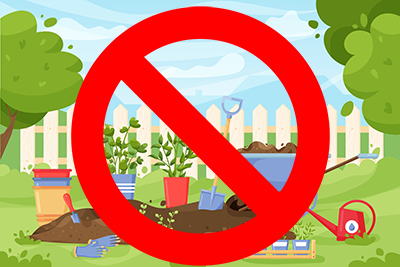While we are all exposed to Non-Aspergillus molds in our daily lives, most of us will not develop aspergillosis. Learn about who is at risk.

Who is at Risk for Non-Aspergillus Mold Infections?
Non-Aspergillus molds are abundant in our local environments. People are constantly exposed to them, yet most people do not develop serious infections. As mentioned, ringworm and other superficial infections can occur in people with normal immune systems, but we are not focused on those infections here.
ImmunocompromisedPatients with compromised immune systems are at the highest risk for sporadic or random invasive infection from environmental exposure–via inhalation of fungal spores–to the non-Aspergillus molds. Immunocompromise status may come in many forms including patients with: |
| Cancer diagnoses receiving chemotherapy |
| Bone marrow or stem cell transplants |
| Solid organ transplant recipients on chronic immunosuppression |
| Patients prescribed high-dose corticosteroids (for example, prednisone) for extended durations |
| Advanced HIV (formerly referred to as acquired immunodeficiency syndrome, AIDS) |
| Autoimmune diseases or immunosuppressive treatment for autoimmune conditions |
| Uncontrolled diabetes |
| Critical illness, particularly in patients with other infections like influenza or COVID-19 |
| Severe burns or burns over significant portions of their bodies. |
These conditions prevent the immune system from performing optimally and allow for potential infection with non-Aspergillus molds.
Inoculation
Though most infections with non-Aspergillus molds occur in immunocompromised patients, anyone can get these infections, especially if directly inoculated with these fungi. Contaminated wounds—often because of traumatic injury—are a key entry point for non-Aspergillus molds to enter the human body. Environmental material (e.g., soil, water, plant matter) can enter the body after a car accident, extreme weather event, or other situation that causes trauma to a patient and exposure to environmental debris.
Reducing Risk for Non-Aspergillus Mold Infections
If you have a weakened immune system, you are at higher risk for fungal infections. But you can take some steps to decrease the likelihood of developing one of these non-Aspergillus mold infections.
Things that might help reduce your risk include the following:
- Avoid areas with lots of dust (construction or excavation sites). If you can’t avoid these areas, consider wearing an N95 respirator or other isolation mask.
- Avoid home improvement projects likely to disrupt soil or other environmental substances. If these projects are necessary/unavoidable, consider wearing an N95 respirator and/or relocating to a safe space during construction.
- Installing an air filtration system is a consideration, but it is not necessary if the cost or disruption associated with installation is a concern.
- If you use a humidifier, clean reservoirs and filters regularly. These surfaces can be a source of bacteria, molds, and other causes of infection.
- During periods when you are very immunocompromised (discuss with a healthcare professional), avoid dusting, vacuuming, or other household chores likely to generate dust or other aerosolization of environmental substances (e.g., soil, water, plant material, etc.).
- Avoid yard work, gardening, or any other activity that causes disruption of soil. If that’s not possible:

- Wear a mask.
- Wear shoes, long pants, and a long-sleeved shirt when doing outdoor work.
- Wear gloves when handling soil, moss, manure, or other organic material.
- Do not touch the soil of indoor plants or change the water in a vase of flowers.
- Clean skin injuries with soap and water especially if they involve soil or dust.
- Prophylactic (preventative) antifungal medication. If you have leukemia, are on certain types of chemotherapy, or are an organ transplant or stem cell transplant recipient, your healthcare provider may consider prescribing an antifungal medication to prevent fungal infections. This is not recommended for most patients, though may be considered in specific circumstances.
Frequently Asked Questions
No, these fungi are not readily transmitted between people or between people and animals. Most people are exposed by breathing fungal spores in the air or via direct inoculation of the fungi into their skin
Mold is everywhere and is usually not harmful. However, the presence of non-Aspergillus mold in your home may increase your risk of exposure and subsequent risk for infection.
If you detect mold in your home, you should focus on removing it. It is typically not worth figuring out what type of mold it is as this may increase your exposure. You may be able to clean it yourself, but it may require professional remediation.
While patients may develop a non-Aspergillus mold infection during a hospital admission, it is unlikely that the infection would be the result of being in a healthcare setting.
Fungal spores are almost always present in the air we breathe. So, most non-Aspergillus mold infections start after exposure to fungal spores in the air around us. Many healthcare facilities, use specialized systems to filter the air (for example, a high-efficiency particulate air [HEPA] filter and laminar flow) or positive air pressure isolation rooms to push infectious particles out of the room. However, it is impossible to completely remove 100% of fungal spores from the air around us.
Construction, especially when digging or excavation is involved, can create lots of dust and disperse fungal spores. This can increase the number of fungal spores in the air and increase our chances of breathing in a large number of spores. Hospitals should be careful when doing construction and have procedures for patients and visitors.

